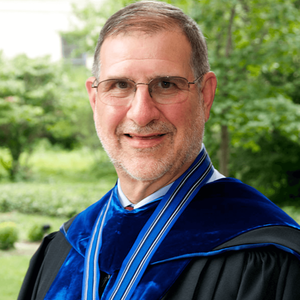"Iron Flow Battery for Large Scale Energy Storage: Concept to Commercialization" by Robert Savinell

Abstract
Large-scale energy storage is required to meet a multitude of modern energy challenges. These challenges include modernizing the grid, incorporating intermittent renewable energy sources (so as to dispatch continuous electrical energy), improving the efficiency of electricity transmission and distribution, and providing flexibility of storage independent of geographical and geological location. In addition, such storage should be scalable for centralized or distributed use.
In this presentation, I will introduce the iron flow battery (IFB) concept for energy storage. Advantages of the IFB include abundant, non-toxic, and non-corrosive materials that are used to provide an energy storage solution that has inherently safe operation and is environmentally friendly. Furthermore, the iron flow battery is likely the lowest cost and most sustainable approach for large scale energy storage. I will summarize key research over the past decade on the hybrid concept where iron is plated into the negative half-cell during charge, and I will describe the path that led to a commercial technology.
But a hybrid flow battery has limited energy storage capacity due to constraints on the amount of metal that can be effectively plated into the cells. To overcome this challenge, we introduced a slurry electrode where iron is plated on conducting particles suspended in the electrolyte. Thus energy storage capacity now only depends on the amount of electrolyte and size of tanks. I will address some of the challenges of this approach and will describe our experimental, modeling and dimensionless analysis research leading towards understanding the performance of these types of electrodes. I will also discuss some of the key activities that led us to transferring IP to a partner for commercial development.
Biography
Robert F. Savinell was employed as a research engineer for Diamond Shamrock Corporation, then as a chemical engineering faculty member at the University of Akron (1979-1985) before joining the faculty at Case Western Reserve University (CWRU) in 1986. Professor Savinell was the director of the Ernest B. Yeager Center for Electrochemical Sciences at CWRU for ten years (1990-2000) and served as Dean of Engineering at CWRU for seven years (2000-2007).
Professor Savinell has been engaged in electrochemical engineering research and development for almost fifty years. Savinell’ s research is directed at: fundamental science and mechanistic issues of electrochemical processes; electrochemical technology systems and device design, development, modeling and optimization. His research has addressed applications for energy conversion, energy storage, sensing, and electrochemical materials extraction and synthesis.
Professor Savinell is the editor-in-chief of the Journal of the Electrochemical Society. He is a fellow of the Electrochemical Society, fellow of the American Institute of Chemical Engineers, and fellow of the International Society of Electrochemistry. He currently is director and PI of a DOE Emerging Frontier Research Center (EFRC) on Breakthrough Electrolytes for Energy Storage (BEES) that includes a research team from the University of Notre Dame.